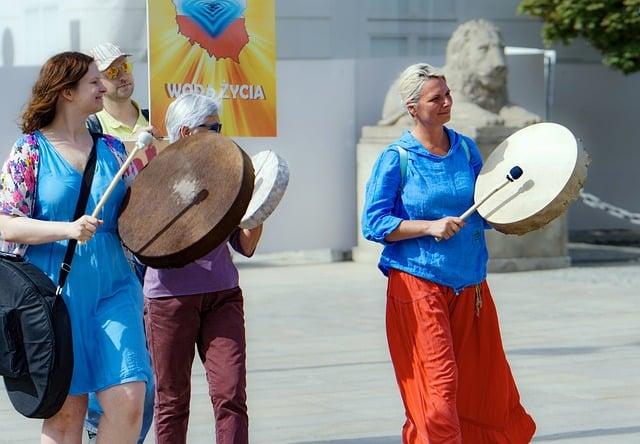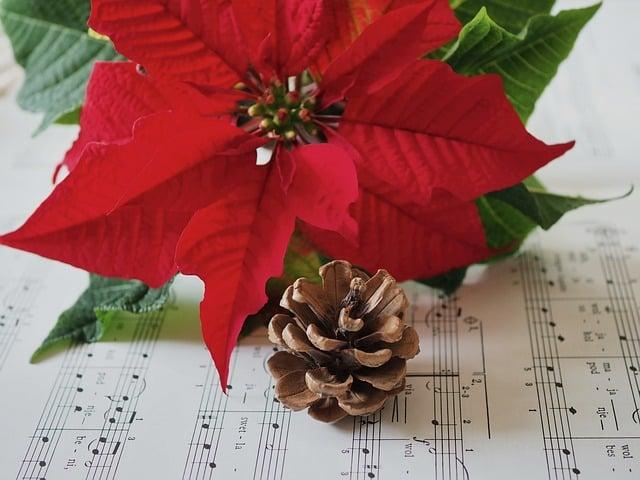In a quaint village, nestled between snow-capped mountains, a curious child named Mia discovered an old Advent calendar in her grandmother’s attic. Intrigued, she opened the first door, revealing a tiny wooden star. Each day, she found a new surprise—a snowflake, a gingerbread man, a tiny bell. As the days passed, Mia invited her friends, regardless of their beliefs, to join her in the countdown to winter festivities. Together, they shared stories, laughter, and treats, realizing that the spirit of anticipation and joy transcended any single tradition.
Table of Contents
- Exploring the Origins and Traditions of Advent Calendars
- Cultural Adaptations: How Advent Calendars Are Embraced Beyond Christianity
- Creative Alternatives: Advent Calendars for Everyone
- The Joy of Countdown: Universal Themes in Advent Calendar Celebrations
- Q&A

Exploring the Origins and Traditions of Advent Calendars
The tradition of Advent calendars dates back to the 19th century, originating in Germany as a way for families to count down the days until Christmas. Initially, these calendars were simple, often marked with chalk on doors or walls, or made from paper with a small religious image behind each door. As the custom evolved, the calendars transformed into more elaborate designs, featuring small doors that revealed a picture or a verse from the Bible each day. This practice not only served as a countdown but also as a means to engage families in the spiritual preparation for the celebration of Christ’s birth. Today, Advent calendars come in various forms, from chocolate-filled treats to themed surprises, appealing to a broader audience beyond their Christian roots.
In contemporary society, the appeal of Advent calendars has expanded significantly, transcending their original religious context. Many people, regardless of their faith, enjoy the festive spirit and the excitement of daily surprises leading up to the holiday season. This shift has led to the creation of diverse calendars that cater to various interests, including beauty products, toys, and even gourmet foods. The essence of anticipation and joy remains central to the experience, making Advent calendars a cherished tradition for many families, irrespective of their religious beliefs. As such, they have become a symbol of the holiday season, fostering a sense of community and celebration that resonates with individuals from all walks of life.

Cultural Adaptations: How Advent Calendars Are Embraced Beyond Christianity
While traditionally rooted in Christian practices, the concept of Advent calendars has transcended its religious origins, finding a place in various cultures and communities around the world. Today, many people embrace the countdown to the holiday season as a way to celebrate the spirit of giving and anticipation, regardless of their religious beliefs. This adaptation has led to the creation of diverse themes and designs that cater to a wide audience, including:
- Seasonal Celebrations: Many cultures have adopted the calendar format to count down to their own significant holidays, such as Hanukkah or the New Year.
- Personal Interests: Advent calendars now feature everything from beauty products to gourmet chocolates, appealing to individual hobbies and preferences.
- Community Engagement: Local businesses and organizations often create calendars that promote community events or charitable causes, fostering a sense of togetherness.
This evolution reflects a broader trend of inclusivity, where the joy of anticipation and celebration can be shared across different backgrounds. As a result, the Advent calendar has become a versatile tool for fostering connections, encouraging creativity, and spreading cheer, making it a beloved tradition for many, regardless of their faith. The calendar’s ability to adapt and resonate with various audiences highlights its universal appeal, transforming it into a symbol of joy and togetherness during the festive season.

Creative Alternatives: Advent Calendars for Everyone
Advent calendars have evolved far beyond their traditional Christian roots, transforming into a delightful way for people of all backgrounds to celebrate the countdown to the holiday season. These calendars can be tailored to suit various interests and preferences, making them a versatile choice for everyone. For instance, consider a foodie-themed calendar that features gourmet treats or recipes behind each door, or a self-care calendar filled with mini pampering products like face masks and scented candles. The possibilities are endless, allowing individuals to create a personalized experience that resonates with their unique tastes.
Moreover, Advent calendars can serve as a platform for creativity and community engagement. Craft enthusiasts might enjoy a DIY calendar where each day reveals a new craft project or art supply, while families can create a family activity calendar that encourages bonding through shared experiences, such as game nights or outdoor adventures. Additionally, for those who appreciate literature, a book-themed calendar could unveil a new short story or poem each day, fostering a love for reading. By embracing these innovative alternatives, Advent calendars can become a cherished tradition for everyone, regardless of their religious beliefs.

The Joy of Countdown: Universal Themes in Advent Calendar Celebrations
The tradition of counting down the days to a significant event has transcended its religious origins, evolving into a universal celebration that resonates with people from various backgrounds. Advent calendars, originally designed to mark the days leading up to Christmas, have found their way into the hearts of many, regardless of faith. This practice embodies a sense of anticipation and joy, inviting individuals to engage in a daily ritual that fosters connection and reflection. The simple act of opening a door each day can evoke feelings of nostalgia and excitement, reminding us of the universal human experience of waiting for something special.
Moreover, the themes encapsulated in these countdowns extend beyond religious connotations, tapping into fundamental aspects of human nature. The joy of discovery, the thrill of surprise, and the warmth of shared experiences are sentiments that resonate with everyone. Advent calendars can be filled with a variety of items, from chocolates and toys to inspirational quotes and self-care treats, making them adaptable to diverse celebrations. This flexibility allows people to create their own traditions, emphasizing the importance of community and togetherness, regardless of the underlying beliefs. In this way, the countdown becomes a celebration of life itself, uniting individuals in a shared journey of joy and anticipation.
Q&A
-
Is the Advent calendar exclusively a Christian tradition?
No, while the Advent calendar has its roots in Christianity, particularly in the celebration of Advent leading up to Christmas, it has evolved into a secular tradition enjoyed by many people, regardless of their religious beliefs.
-
Can non-Christians use Advent calendars?
Absolutely! Many non-Christians use Advent calendars as a fun way to count down to the holiday season, often incorporating themes or treats that resonate with their own traditions or preferences.
-
What types of Advent calendars are available?
Advent calendars come in various forms, including:
- Chocolate-filled calendars
- Beauty product calendars
- DIY calendars with personalized gifts
- Calendars featuring toys or activities
-
Are there Advent calendars for other holidays?
Yes! Similar countdown calendars exist for other holidays, such as:
- Hanukkah
- New Year’s
- Halloween
These calendars often reflect the unique traditions and celebrations associated with each holiday.
As we unwrap the layers of the Advent calendar, it becomes clear that its charm transcends religious boundaries. Whether for reflection, anticipation, or simply joy, this tradition invites everyone to partake in the countdown to the season of giving.

大家好,我是彼得潘,專業的手法身體治療師。我喜歡探索和研究各種主題,並透過與人工智慧的合作分享專業、實用、有趣的文章。我們定期進行人工審核,以確保內容的準確性。如果您發現文章中有任何不準確的地方,請隨時與我們聯繫,我們會及時糾正。您可以透過 [email protected] 與我們聯繫。



